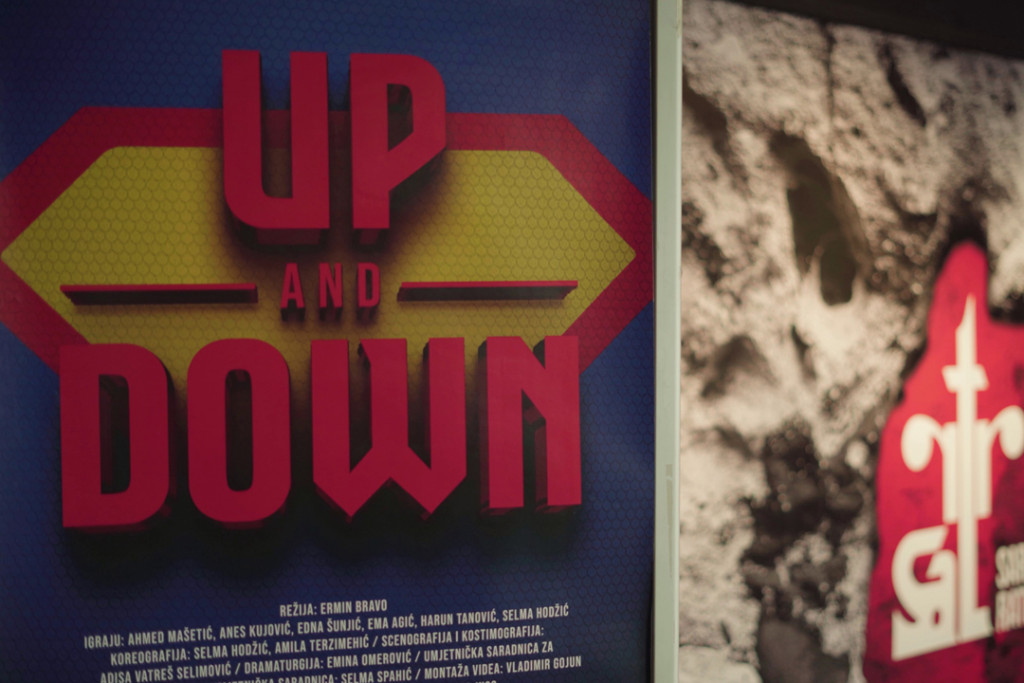
Reporter: Osman Zukić / Photography: Almir Kljuno / doku.ba
Bosnia and Herzegovina is a country that lacks systemic solutions in all matters when it comes to the inclusion of children and adults with disabilities in society. Inclusive education has partially taken root, but it is not equally carried out across the country. Also, there is no systemic solution when it comes to employment. Architectural structures and access to public services, with a few exceptions, are not adapted for people with disabilities.
Consequently, the question of where should people with disabilities, such as people with Down syndrome, go when their caregivers are gone remains unresolved.
Sevdija Kujović and Maida Agić talk about the position of children and adults with disabilities in society in the premises of the Association “Life with Down Syndrome of the Federation of Bosnia and Herzegovina”.
Life with Down Syndrome
“We had big goals,” begins Sevdija Kujović. “A small group of parents with big goals. Why? I still do not know why. Simply put, we wanted to fight for our children, for their place in society. And for all the other children with whom they should be.”
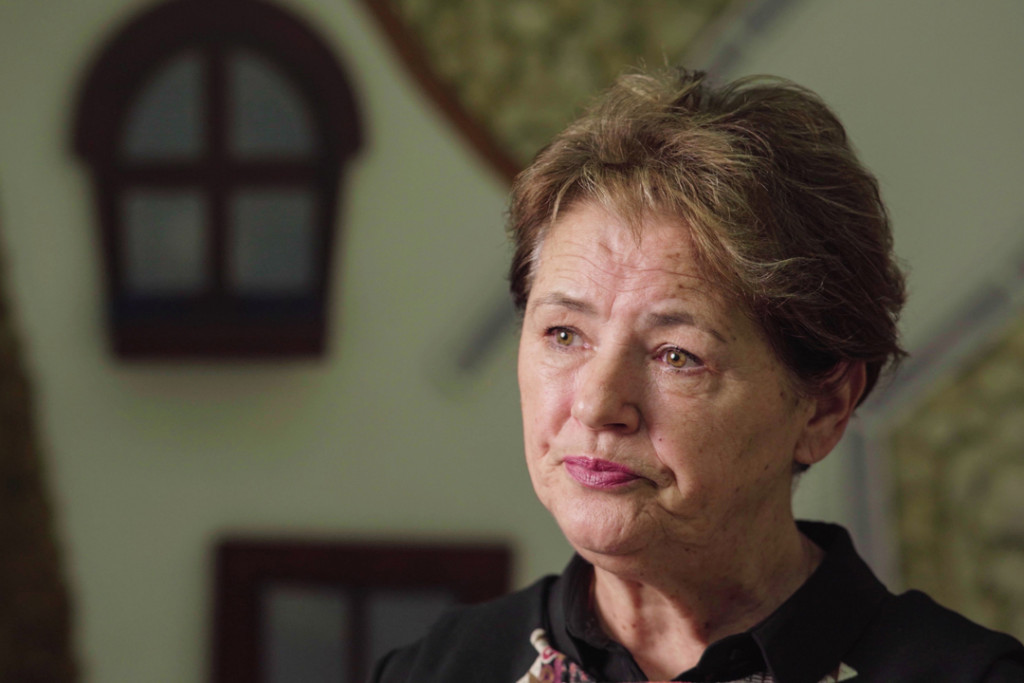
The Association “Life with Down syndrome of the Federation of Bosnia and Herzegovina” was established in 2006. They promote the human rights of people with Down syndrome and other disabilities through public advocacy, information and education for parents, caregivers, teachers, medical professionals, and other experts.
“At the time, we were parents whose children were supposed to enroll in kindergartens or regular schools. They were rejected. So, we could not enroll our children where we wanted, and that probably angered and triggered us. It was actually a revolt. We were parents who felt the barriers, and how the system and society were closed.”
Everything they did, they did with the aim of motivating decision-makers to use their voice to make life easier for children and adults with disabilities.
They say, when they get tired, often the same question repeats like a refrain.
“Is all of this really necessary just to enroll a child in a regular school, and to ensure that a child gets a good education? Why does it take so much just to get a small change? Some crumbs”.
Nothing about us without us
Twenty years later, the Association “Life with Down Syndrome” is proud. The young people for whose rights they fought now perform in a play with messages that resonate with us. As they talk about themselves, they talk about us.
“We always have people with Down syndrome with us when planning changes, when planning anything that will address their needs. We should not work without them, without people with disabilities. They must be involved in all phases of certain changes, and in what organizations and the system do. Nothing about them without them.”
“Why is their participation important?”
“It makes us rethink, question ourselves and our views, and these are certainly good prerequisites for us to change our awareness for the better, and more positively.”
When we ask what worries them the most it brings us to the biggest challenge. Where will people with disabilities go when their caregivers are gone?
“That remains unresolved, it troubles us the most, it seems to me, it has been the biggest challenge for almost twenty years of our work. Their independent life, or their life after us, their parents. It is a challenge because society is not ready for it, society still does not have enough trust in them.”
Society did not have trust even when they advocated for inclusion in education, but now it is mostly implemented. Society must trust people with disabilities more. With trust, solutions will come. Institutions of the system should be the greatest support for people with disabilities.
“There is still a lot of work that needs to be done.”
Up and Down
The theatrical performance Up and Down was created in a co-production of the Sarajevo War Theater and the Association “Life with Down Syndrome of the FBiH”. It was directed by actor and director Ermin Bravo. It is a documentary play starring young people with Down syndrome.
We are at the rehearsal before the second performance. On stage, they talk about their everyday life, answering questions posed by the director. They make each other laugh, and it is obvious that the director motivates them to improvise. They talk about their successes in sports, arts, at work, and in school. They make us reconsider our view about them.
We are blown away.
Ermin Bravo later says that working on this project was very challenging. He admits that he has learned a lot and that this story has affected him and his colleagues both personally and professionally. When he first saw these young people, he thought of making a documentary play with them, in which they would portray their own lives.
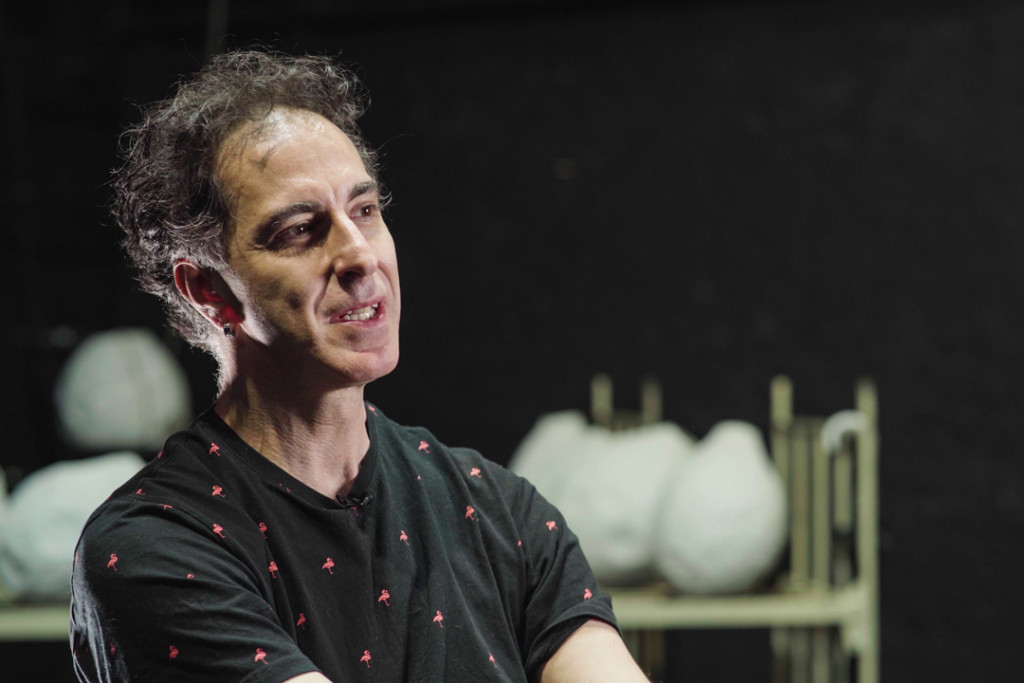
“We started rehearsals, and I saw that it would take some time. The methods were different, a completely different approach from what we are used to. We invested a lot, but what they gave us in return is immeasurable. Their dedication, honesty, spontaneity, life without filters, without pretense, without lies, without manipulation, have refreshed my life and career. They learned a lot, but we learned even more.”
He says that it was necessary for them to get to know each other and build trust “because it is not easy to open up to someone you do not know, and who is a stranger to you”.
In the play, the participants confided and shared their views on life, society, politics, love... They worked on coordination, articulation, and body language. This will help them to be even more prepared for this world.
This Sarajevo director was involved in similar projects before. He sees theater as a space of freedom, creativity, and expression. Thus, it is a space for everyone. He believes that activism and art go hand in hand and that art is a form of social engagement.
“The reactions to this play are different. It almost feels like a concert. The audience keeps interrupting with applause, and laughter. People do not watch it as theater but as an artistic event.”
People’s reactions are very intense: some cry, some laugh. They say they had a beautiful evening and are filled with positive energy.
There is Progress
We met Selma and Ahmed. Both of them, among others, perform in the play. Besides acting, they play sports. Ahmed used to train in karate and now he trains in swimming. He won his hundredth medal at a competition in Rijeka. He also works in a boutique in Sarajevo.
Selma trains in dancing. She says she likes street dancing. She works at the National Theater and would like to perform there someday. Together with their parents, they make this society better.
When asked about the current situation compared to twenty years ago, Maida Agić says that progress is noticeable, but there's still a lot of work that needs to be done.
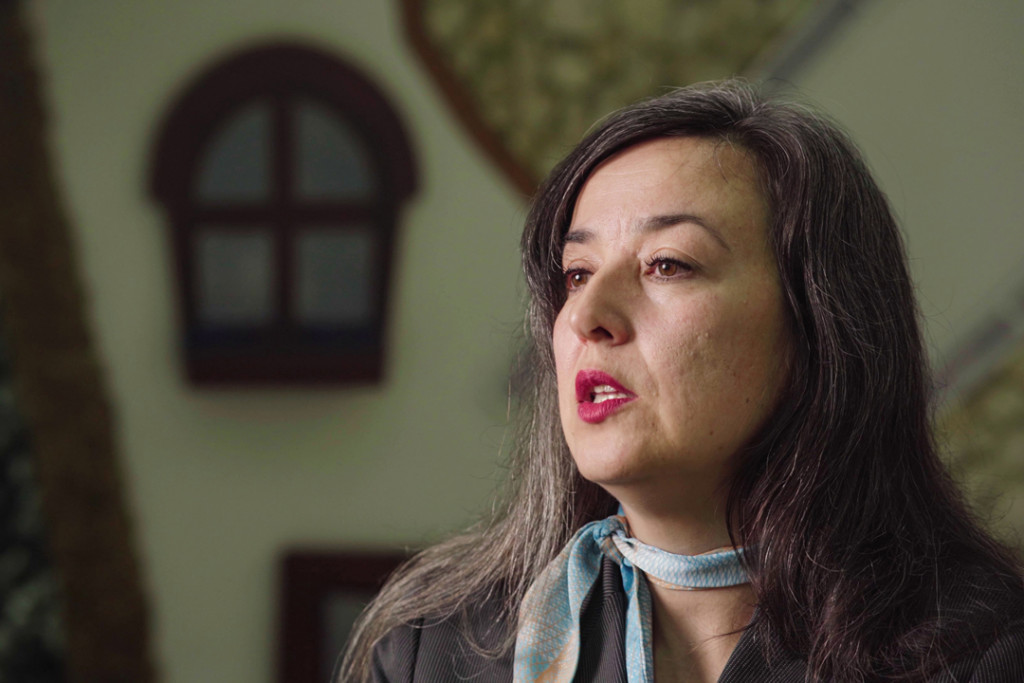
“We cannot say that we have fully implemented inclusion. We must continue to advocate for it in every sense. Every child with Down syndrome has the right to be with their peers in kindergartens and regular schools, but it is still not the case in all parts of Bosnia and Herzegovina. We must provide the opportunity for every child with disability to attend regular kindergartens, to attend regular schools, and to receive all the support they need to show their full potential.”
She says they are happy to see new generations of parents who are much better equipped with information, and they hope that they will continue this fight to make the system better, more inclusive, and of higher quality.
After education, employing people with disabilities is a new challenge. There are some sporadic good examples, but there are no systemic solutions. It seems that it was less challenging to implement inclusion in education than to employ people with disabilities.
“After school, life begins. School is a structure, school is a system. When a child leaves school, there is no system. Inclusion has done its part, children have gained visibility. Their typical peers, as we call them, are more aware. They grow up knowing that any type of disability is not something to be afraid of. They grow up knowing what their friends can do and where they need support.”
Maida says that it has been noted that the rate of violence in classes with a child with disability is minimal, often close to zero. This, she concludes, speaks volumes about the influence of people with disabilities on us and our behavior.
“All parents think about what will happen to our children, our adult children the moment we are gone. That is why this independent life is very important to us, a systemic response and support for independent life are important. None of us parents aim for our child to end up, after we are gone, in an institution, in an institute. Our country has an important role and task to carry ou deinstitutionalization. No person deserves to spend part of their life confined to an institution.”
And that is what we must avoid as a society.
“We ask from the state to find a way for people with Down syndrome and people with other types of disabilities to live a quality independent life—with support.”
We do not do anything just for ourselves
We meet Edna at the Sarajevo Youth Theater. She works in cloakroom, and she takes photos of performances. She is also part of the team for the play Up and Down. Her mother, Sabina Šunjić, could never have dreamed that her daughter would go to school, work, act, and successfully engage in sports.
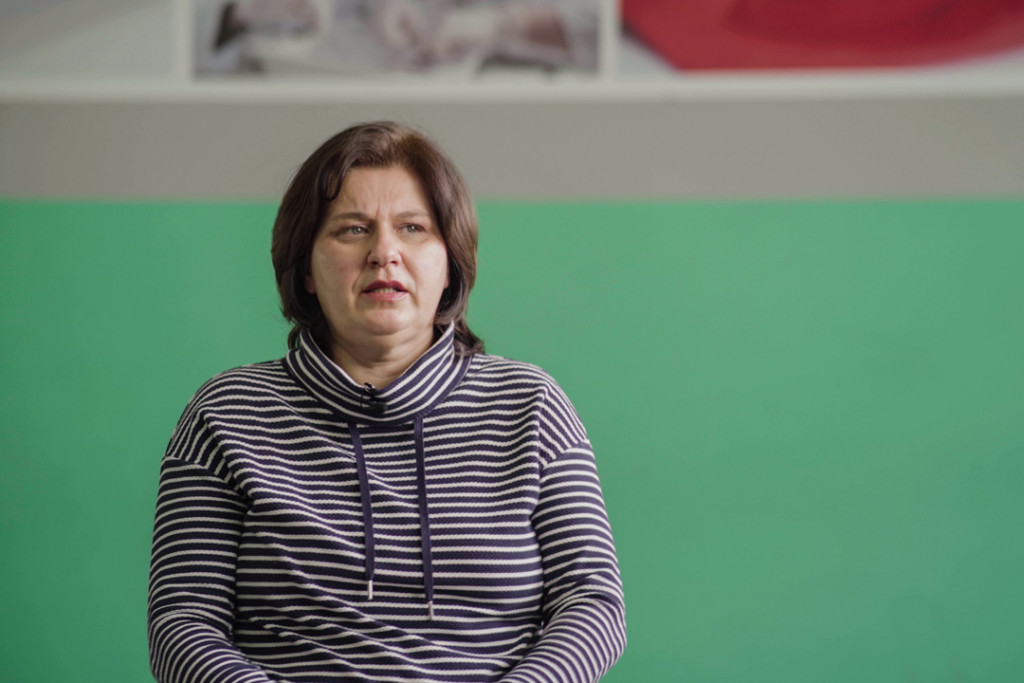
“Well, she worked in my company for five or six months. For me, the first time she entered the building, it was something that could not be described to me. I could not believe it. Before the theater, she worked in a shop, and nobody ever said that she could not do something.”
All of this requires a lot of effort and energy, right from their birth. Early intervention is crucial, and the system should provide it. According to experts, starting to work with a child with disabilities in the second or third year is too late.
On the other hand, there is only one expert in genetic pediatrics in Bosnia and Herzegovina. The system has failed in this sense as well.
“All that we have done and are doing is for other parents and other children. We want to share everything to give other parents strength and encouragement. To show them what is possible if they work, pay attention, and commit.”
Sabina does not hide her biggest concern either.
“Even though our children have siblings, what will happen after us? It is not right that they should continue what we took upon ourselves. It will probably happen because the system will not provide adequate support. We try, as much as we can, to somehow provide them with a better, higher quality life. For something more, we have to change the legal regulations, we have to change the conditions. That is very difficult, and we are tired.”
How will I live with him when you die?
We were in Trebinje then. For the first time, we were working on a story about the position of children and adults with disabilities in society. Our interviewee has two sons. The older one has Down syndrome, lives with his family, and they take care of him. The story ended with the sentence: “How will I live with him when you die?!”
His younger brother said it.
Five or six years later, we hear something similar. What has the system done in the meantime?
Institutions still exist. The conditions in them are often inadequate. There have been minimal improvements regarding inclusion in education. There are no systemic solutions for employment. The burden is still on parents, non-governmental organizations, and rare individuals in the political scene who speak about people with disabilities and fight for their rights. There are no systemic solutions in the healthcare sector either. Every visit, for example, to a dentist, is traumatic for both children and their parents.
On the other hand, our interviewees admitted that this country is recognized as the country that is making progress in terms of the position of children and persons with disabilities in society. Rightly so. Things are better than they were twenty years ago. Things are moving forward for the better, but very slowly.
Why does it have to be so slow?
The position of children and adults with disabilities in a society speaks volumes about the society itself. Their presence reminds us of how selfish we are while adapting the world solely to ourselves. What can each of us do to make things better for us in five or six years?
